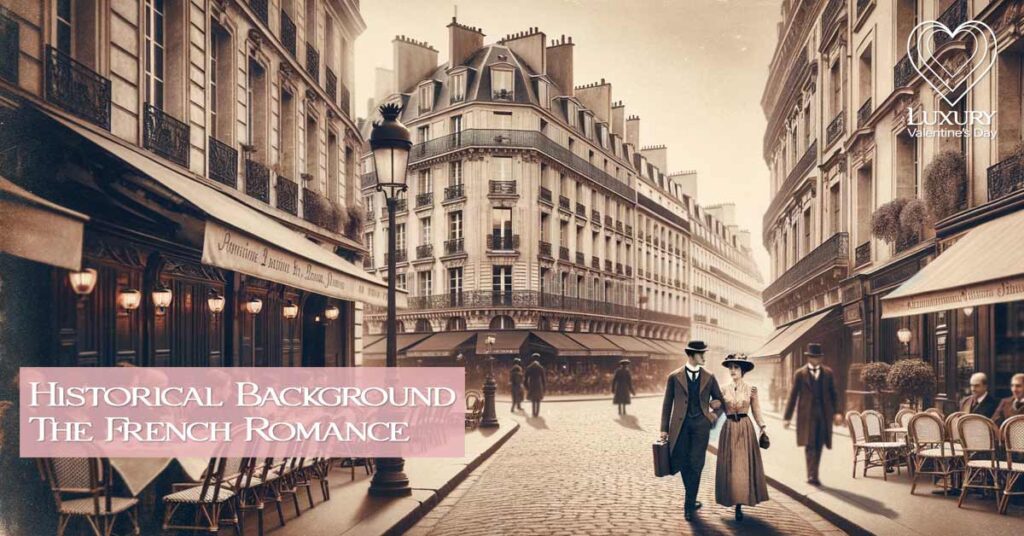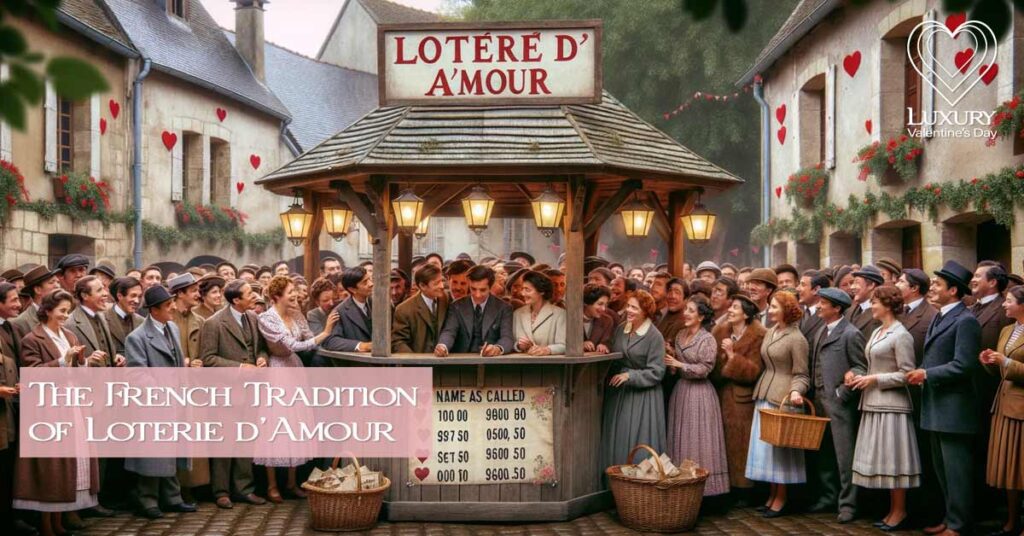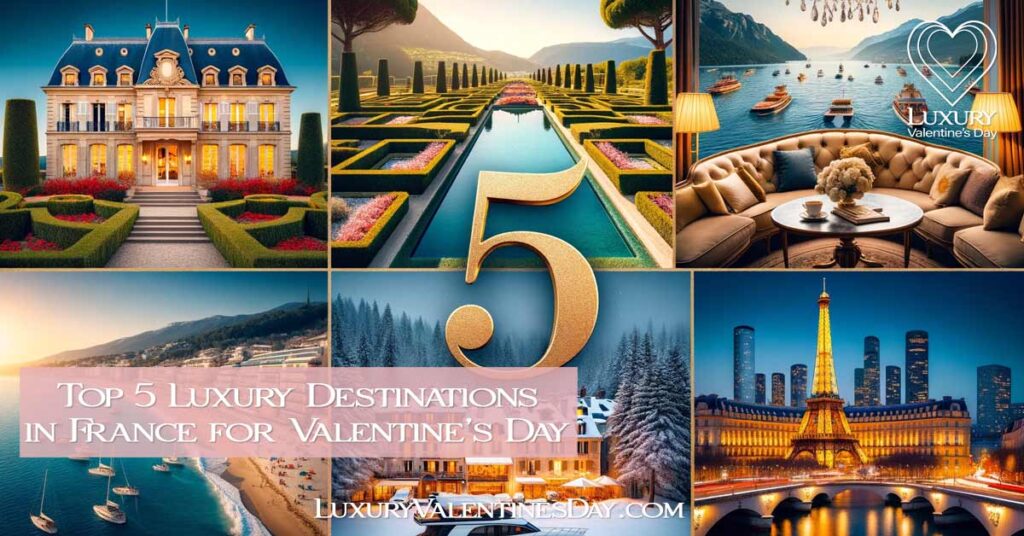
Valentine’s Day, (“La Saint-Valentin” in French), a global celebration of love and affection, is marked on the 14th of February each year. While it is cherished worldwide, each country brings its own unique twist to this romantic occasion. In France, the day of love is celebrated with a charm and elegance that is quintessentially French. Here, I’ll delve into the captivating world of Valentine’s Day in France, exploring its rich traditions, cultural significance, and how it differs from the more widespread international norms.
Historical Background: The French Romance

The enchanting origins of Valentine’s Day in France offer a captivating story of love, rooted in both ancient traditions and medieval charm. While the ancient Roman influence cannot be denied, the French have added their own unique flavour to this celebration.
Love and the Ancient Romans
Like many other countries in Europe, France has Valentine’s Day deeply entwined with ancient Roman traditions. In ancient Rome, mid-February was the time of Lupercalia, a fertility festival dedicated to Faunus, the god of agriculture. While the Festival of Lupercalia was a Roman tradition, its echoes can be heard in the notion of love being associated with this time of year.
Medieval French Courtly Love
The French have a long history of celebrating love, and it’s during the Middle Ages that the exchange of love notes, often known as “poetical valentines,” or in French “Saint-Valentin poétique,” became a significant part of Valentine’s Day in France. These love notes were written to express one’s affection and were often accompanied by small tokens of love.
France’s connection with chivalry and courtly love further reinforced the importance of romance. The troubadours, poets who composed songs about chivalry and courtly love, played a pivotal role in promoting the idea of romantic love as we know it today. They celebrated the noble values of love, gallantry, and devotion, which were intrinsic to French culture.
The Duke of Orleans, Charles d’Orleans, was a significant figure in the late Middle Ages, known for his literary contributions. He fought for France during the 100 Years War, a long-standing conflict between the Kingdom of France and the Kingdom of England. During the war, he was captured by the English at the Battle of Agincourt in 1415. He spent nearly 25 years as a prisoner in England, primarily in the Tower of London.
He is renowned for his extensive collection of love poems and writings that he composed while he was imprisoned in the Tower. These poems and love letters, addressed to his wife, Bonne of Armagnac, expressed his deep affection for her and are considered some of the earliest known Valentine’s Day cards.
Bonne died during his captivity and on his return to France, he married Marie of Cleves in 1440. One of their sons became King Louis XII and his descendants would go on to have a significant impact on the history of France and its monarchy.
Charles’ writings are often cited as early examples of the romantic sentiments that Valentine’s Day represents. They played a role in popularizing the idea of expressing love and affection through written messages. While these writings are not the direct origin of Valentine’s Day, they certainly contributed to the development of the tradition of sending love notes and expressing romantic feelings, which is now a hallmark of the holiday.
The Charming French Tradition of Loterie d’Amour

The French tradition of “Loterie d’Amour,” often referred to as the “Drawing for Love,” was a charming and unique Valentine’s Day custom that dated back to the 18th century. This romantic tradition involved unmarried individuals, often young men and women, coming together in a social gathering, usually in houses facing each other. The goal was to call out to one another and form couples through a creative and spontaneous process.
The heart of the tradition lay in the random pairing of individuals. Participants would call out to one another, and if a man was not satisfied with his match, he had the option to leave the woman he was paired with. However, such a practice was not without its challenges, as the women who remained unmatched could sometimes be left disappointed. The underlying sentiment was one of lightheartedness and the hope of finding love in a playful and social manner.
The “Loterie d’Amour” tradition added a delightful twist to Valentine’s Day in France, emphasizing the element of chance and serendipity in the search for love. While the tradition is less common today, its historical significance endures, and it serves as a reminder of the country’s rich and romantic cultural heritage.
How to Say “Happy Valentine’s Day” in French

When celebrating Valentine’s Day in France, understanding how to express your sentiments in the native language can add a delightful touch to your romantic gestures. French, often considered the language of love, offers a range of beautiful phrases and expressions to convey affection and adoration. Here are some key phrases and words to help you immerse yourself in the romantic ambiance of Valentine’s Day in France:
Happy Valentine’s Day
- Translation: “Joyeuse Saint-Valentin“
- Phonetic Pronunciation: [zhwah-yuhz sahn val-uhn-teen]
I love you
- Translation: “Je t’aime“
- Phonetic Pronunciation: [zhuh tem]
I love you very much
- Translation: “Je t’aime beaucoup“
- Phonetic Pronunciation: [zhuh tem bo-koo]
You’re the love of my life
- Translation: “Tu es l’amour de ma vie“
- Phonetic Pronunciation: [too eh lahm-oor duh mah vee]
These phrases will help you convey your affection and sentiments in French, making your expressions of love more special and meaningful.
Common Gifts and Their Meanings, Do’s and Dont’s in France

In France, the act of gift-giving carries deep cultural significance and symbolism. It’s not just about the item itself; it’s also about the message it conveys. Understanding the meanings behind common gifts in France provides valuable insights into the country’s rich cultural traditions and social etiquette.
| Common Gifts | Meanings in France |
| Flowers | Express sentiments such as love, friendship, or condolences. |
| Wine | Symbolize celebration, appreciation, or friendship. |
| Chocolates | Represent sweetness, affection, and a token of gratitude. |
| Perfume | Convey a personal and intimate touch, reflecting one’s taste. |
Romantic Things To Do in France

Paris is often referred to as the “City of Love,” and it offers a plethora of romantic activities that set the stage for unforgettable experiences on Valentine’s Day. But all across this enchanting country is synonymous with romance, and couples visiting or residing in France have a multitude of options to celebrate their love.
One quintessential romantic thing to do is a picnic by the Seine River in Paris. The gentle flow of the river, the iconic bridges, and the illuminated cityscape provide a dreamy backdrop for couples to enjoy each other’s company. Sharing a bottle of wine and some delectable French cheese under the starry Parisian sky is an experience that lingers in the heart.
Another cherished activity is taking a leisurely stroll through Montmartre, a picturesque hill in Paris. Hand in hand, couples can explore charming streets, discover hidden corners, and perhaps even visit the famous Place du Tertre, where artists create portraits and paintings on the spot. The artistic atmosphere and stunning views of the city below make this neighborhood an ideal spot for romance.
Dining is a fundamental aspect of French culture, and on Valentine’s Day, couples often indulge in cozy dinners in charming Parisian bistros. These intimate restaurants exude an ambiance of love and elegance. Whether it’s savoring a classic French dish, sharing a decadent dessert, or sipping champagne, dining in a Parisian bistro offers an intimate and memorable experience.
Top 5 Luxurious Destinations in France for Valentine’s Day

For those seeking a touch of luxury, France provides a host of exquisite destinations to celebrate Valentine’s Day:
1. Paris
Undoubtedly, the epitome of romance, Paris is adorned with iconic landmarks like the Eiffel Tower and the Louvre. A romantic cruise along the Seine River or a stay in a lavish hotel can elevate your experience.
2. French Riviera
The French Riviera is a coastal paradise where you can bask in the Mediterranean sun. Stroll hand in hand along pristine beaches, enjoy the vibrant nightlife, and explore charming coastal towns.
3. Loire Valley
For a fairytale experience, the Loire Valley boasts majestic castles and sprawling vineyards. Stay in a chateau, take wine tours, and revel in the historic beauty of the region.
4. Provence
Famous for its lavender fields and picturesque villages, Provence offers a serene and romantic escape. Explore charming towns, visit local markets, and savor delicious Provençal cuisine.
5. Chamonix
If you’re a winter lover, Chamonix in the French Alps is an ideal destination. Enjoy skiing, snowshoeing, and the cozy ambiance of alpine lodges.
Cultural Significance
In France, Valentine’s Day carries no specific religious or historical significance. Instead, it is celebrated as an occasion to express love and affection, underscoring the importance of emotional connections. The French embrace this day as an opportunity to celebrate romantic love, cherish their partners, and kindle the flames of passion. It’s a time for heartfelt gestures, from exchanging gifts to sharing special moments, all within the backdrop of one of the most romantic countries in the world.
Do They Celebrate Valentines Day in Europe?
- San Valentin Spanish
- Valentine’s Day in Germany: A Journey of Love and Tradition
- Valentine’s Day in UK
- Italian Valentine’s Day
- Poland
- Valentine’s Day Wales
- Norway Valentine’s Day
Latest Articles
- Butternut Squash Ravioli with Sage Butter: A Perfect Romantic Dinner for Two

- Elegant Herb-Crusted Rack of Lamb for a Romantic Dinner

- Luxurious Truffle Pasta with Parmesan Recipe

- Stuffed Chicken Breast with Spinach & Cheese

- Balsamic Glazed Lamb Chops for a Romantic Dinner

- Champagne Risotto with Parmesan for a Romantic Dinner








